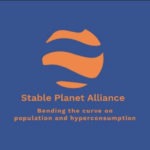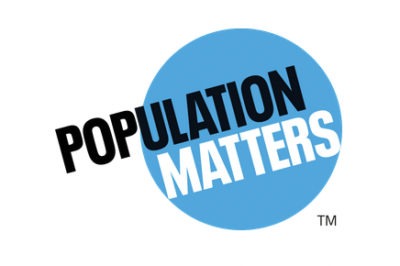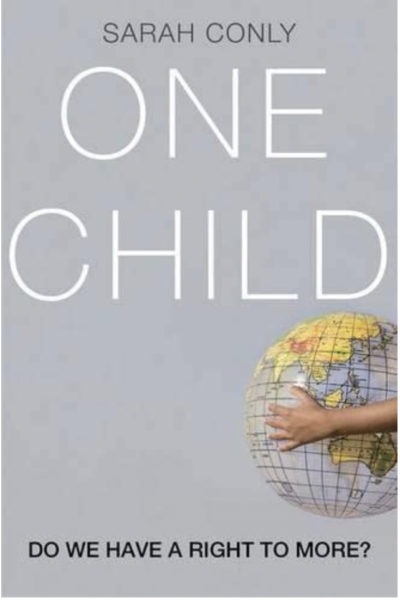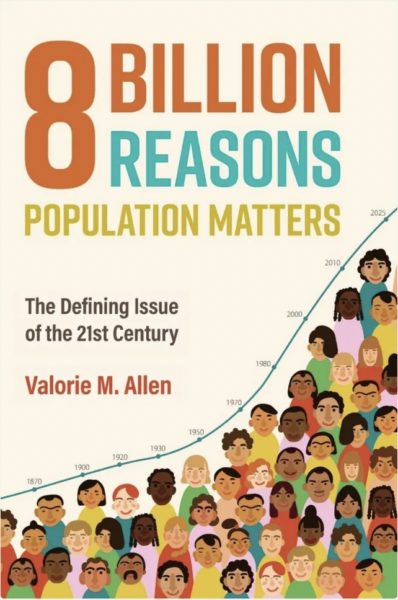Our world population has now reached 8 billion.
From now on, it’s 8 billion and counting.
We find that the world has grown smaller and the world’s people have become almost one community. We are also being drawn together by the grave problems we face: overpopulation, dwindling natural resources, and an environmental crisis that threaten the very foundation of existence on this small planet we share. I believe that to meet the challenge of our times, human beings will have to develop a greater sense of universal responsibility. Each of us must learn to work not just for his or her own self, family or nation, but for the benefit of all humankind. Universal responsibility is the real key to human survival. It is the best foundation for world peace, the equitable use of natural resources, and the proper care of the environment. – His Holyness, The 14th Dalai Lama of Tibet
Check out the links below, visit our population library, and get involved!
Stable Planet Alliance
For the resilience and stability of our climate and planet, we must accelerate empowering, rights-based solutions to stabilize and reduce our sprawling human impact.
For 25 years, hardly anyone’s spoken about population and consumption, and facing head-on the two major ‘multiplier threats’ to our planet. It’s seemed taboo to talk about both – the unspoken elephant in the room. We can’t accept that. Rome is burning.
Find out more and watch the podcast and videos by Prof Bill Rees, Dr. Chris Tucker, and Prof Phoebe Barnard here.
Media Alert: Experts Available for Interviews: COP27, Global Population hits 8 Billion
Population Communication
Population Communication is actively working on prescribing actions to achieve replacement-size families by improving the status of women, guaranteeing quality family planning services, and reinforcing a human rights approach to reproductive health and family planning.
“When Population Communication was founded in 1977, the world’s population was close to four billion. The UN declared the 8th billion arrives on November 14 but no reference to overpopulation. When I was born in August 1938 the world had 2.2 billion. 8.2 billion will arrive shortly. A child born today who lives to 80 or 90 years old will be on a planet in which 6 billion more humans will die than when I was born. Gas and oil will peak and begin to decline to zero, coal will take a little bit longer. From 1966 to 1985 I got 90 heads of government to sign a statement in support of population stabilization. Today the UN, donors, NGOs, and foundations are discounting or ignoring the population problem. I started my career in Egypt as a soil scientist in 1960, switched to family planning in Japan as a Pathfinder in 1962, joined the Population Council in the Republic of China in 1964, Turkey in 1966, and from 1969 to 75 advised the government of Iran on the structure of a family planning program that eventually reached the 2-child family. I founded Population Communication in 1977 when there were 4 billion people on the planet.” – Robert Gillespie, President of Population Communication
Watch the 2006 Film No Vacancy (also featuring Paul Ehrlich) here:
No Vacancy is that rare chronicle of sobering optimism in a world accustomed to thinking of population as a dilemma with little hope for positive change. No Vacancy journeys the world in search of answers, providing a window on remarkable events occurring that have resulted in smaller family sizes and the empowerment of women and children.
Written, Directed, and Produced by Michael Tobias ♦ Produced by Jane Gray Morrison, Bob Gillespie, Elizabeth Hughes ♦ Edited by Marc Griffith and Michelle Griffith ♦ Cinematography by Michael Tobias and Travis Johnson ♦ With support from the Fred H. Bixby Foundation ♦ Copyright 2005 by Dancing Star Foundation and Population Communication
The Overpopulation Project
The aim of The Overpopulation Project (TOP) is to study and highlight the environmental impacts of overpopulation, including humane policies to end population growth around the world. Initiated in 2017 with a generous two-year grant from the Global Challenges Foundation, TOP plans to continue its work through donations from supporters. Articles include:
Is overpopulation a dirty word?
Many readers of our blog probably see no problem with “overpopulation,” but we sometimes get negative responses when we use the word, even from colleagues who largely share our views. Why is this so? How should overpopulation best be defined? Read more here.
The role of immigration in Italy’s recent election
How important were immigration issues in the recent electoral triumph of Giorgia Meloni’s Fratelli d’Italia party? TOP’s chief Italian correspondent gives us her analysis.
What is the optimal human population? An eminent economist weighs in
Efforts to specify the optimal human population on Earth are as complex as they are controversial. A recent book from Cambridge University economist Sir Partha Dasgupta develops a theoretically rigorous approach to this perennial question, finding that an optimal human population might range from 500 million to 5 billion.
Family planning success stories
Across the globe, there have been several examples of well-executed family planning programs. We have highlighted some of them here.
Solutions
Although many environmental trends are grim, there exist clear paths forward toward a more sustainable world: one where people steward resources for the future and share habitat and resources generously with other species. Obviously, no one person or organization can cover all the efforts suggested below. But each of us can do something and together we can create a sustainable world.
Check out more publications and resources by TOP.
Global Population Speak Out
Overdevelopment, Overpopulation, Overshoot (OVER) contains powerful and evocative images showing the ecological and social tragedies of humanity’s ballooning numbers and consumption. It’s time to speak out. (And join the campaign).
Population Matters
Crisis point: The world at 8 billion people
With the birth of the planet’s 8 billionth person just around the corner, conversations around population growth are becoming ever harder to ignore. The facts are striking; half of the world’s population is made up of just seven countries, we will likely add another 2.4 billion people over the next 60-70 years before, if the UN projections are correct, human numbers plateau and begin to fall. Former Monty Python, Michael Palin said: “When I was born, the Earth’s population was 2.3 billion. Now it is nudging eight billion. To satisfy this massive, unprecedented growth, we’re taking the place apart.” We are, and he’s seen the evidence in more parts of the world than many. The latest WWF/ZSL ‘Living Planet Report’ (LPR) sets out the grim stats: 70% ‘loss’ of all wildlife populations over the past 60 years (worse than the last LPR of two years ago). But WWF/ZSL don’t have Palin’s courage to ‘tell it as it is’, to state what’s driving the destruction.
Do we really have 8 billion opportunities?
8 billion strong, 8 billion possibilities, 8 billion innovators. That’s the messaging coming from the UN in recent weeks as we edge towards 8 billion people on the planet. But the reality beneath the positivity is one of limited opportunities and wasted potential for hundreds of millions. In this personal post, Population Matters consultant Florence Blondel draws on the data and her experience as an award-winning journalist in her home country of Uganda to paint a more sobering picture. Read the full article here and more facts and solutions here.
Earth Overshoot Day & Global Footprint Network
Is it helpful to talk about population?
Population is a topic often associated with contention, taboos, prejudices, and a tragic history. So, we asked young and young-at-heart thought-leaders whether we should even talk about population. All responded that we need a more equitable world, which includes gender equity and the ability to choose the size of one’s family. Explore their takes on discussing population.
Books
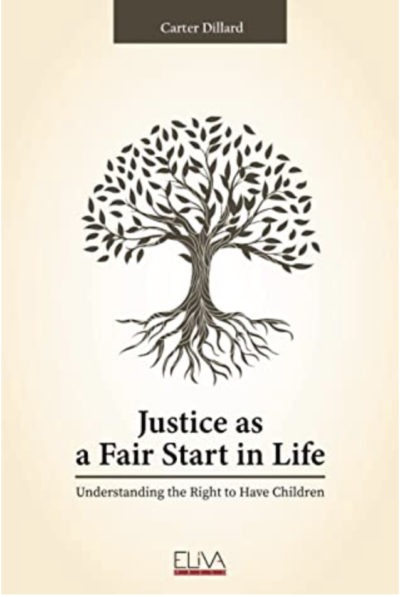 Justice as a Fair Start in Life: Understanding the Right to Have Children
Justice as a Fair Start in Life: Understanding the Right to Have Children
By Carter Dillard. Recommended by leading constitutional scholar Prof. Lawrence B. Solum (click here for his review; more reviews here and here.)
One Child: Do we have a right to more?
By Sarah Conly. Reviewed here by Phil Cafaro, Philosophy professor at Colorado State University in Fort Collins.
8 Billion Reasons
The views and opinions expressed through the MAHB Website are those of the contributing authors and do not necessarily reflect an official position of the MAHB. The MAHB aims to share a range of perspectives and welcomes the discussions that they prompt.All our environmental problems become easier to solve with fewer people, and harder — and ultimately impossible — to solve with ever more people. – Sir David Attenborough


